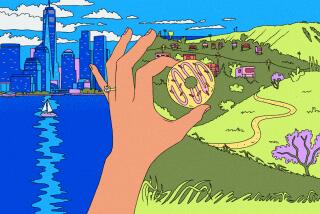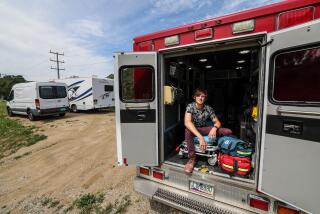Readers React: Waze and the ‘quiet enjoyment’ of our neighborhoods
To the editor: Brian K. Roberts missed two key issues in his defense of the traffic app Waze and using residential streets to commute. (“Will traffic NIMBYs ruin Waze?,” op-ed, May 4)
The first is whether residents are entitled to “quiet enjoyment” of their neighborhood. Most home buyers place considerable value on the quality-of-life issues associated with their neighborhoods and willingly pay more for areas that rank higher on the scale. When a quiet neighborhood becomes a major traffic artery, quality of life suffers.
The other, more fundamental issue is whether residential neighborhoods are primarily public goods or whether they are more like private assets. Most people would agree that they should be accessible to the general public. The controversy is over how accessible.
Apps like Waze disrupt quiet enjoyment in the same way as Airbnb, and there’s certainly a lot of discussion around the latter one. Would Roberts mind if his neighbors decided to turn their homes into mini-hotels? If so, he should think twice about disrupting the quiet enjoyment of other people.
Mitchel Kadish, Venice
..
To the editor: What is the world coming to? First the rich folks are told that they can’t wall off the public beaches from the public, can’t put up padlocked gates, can’t post their own “No Parking” signs, and can’t paint curbs red with spray paint.
And now they have to let the public use the public streets. What’s next? Will we all have to breathe the same air?
It’s bad enough that their limousines get caught up in rush-hour traffic, but now the rumble of passing traffic in their quiet neighborhoods is disturbing the silt in the wine bottles stored in their climate-controlled cellars.
Muffy, bring me my salts as I stagger to the fainting couch!
Stephen C. Lee, La Habra
Follow the Opinion section on Twitter @latimesopinion and Facebook
More to Read
A cure for the common opinion
Get thought-provoking perspectives with our weekly newsletter.
You may occasionally receive promotional content from the Los Angeles Times.










